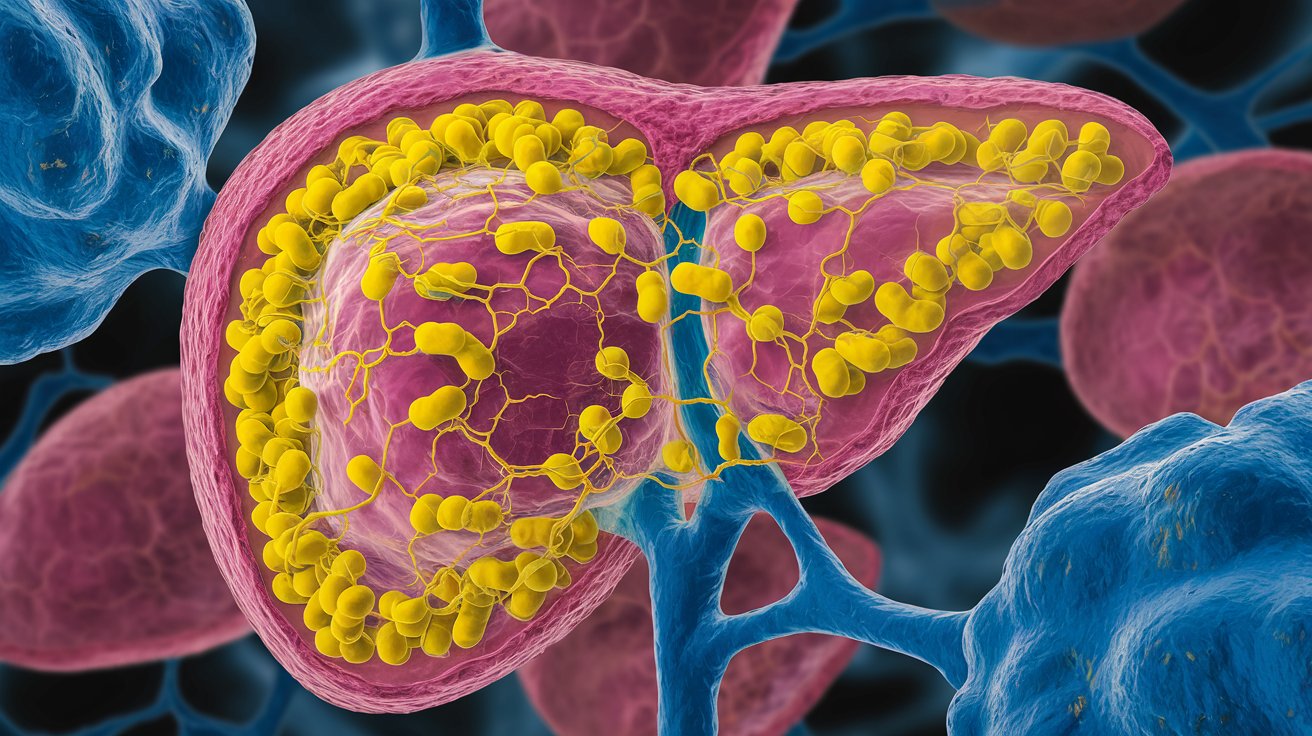
Intercellular Cholesterol Esterification Disease might sound like a mouthful, but understanding it is crucial for grasping how our bodies manage cholesterol. This rare condition affects how cells process and store cholesterol, leading to various health issues. Cholesterol is essential for building cell membranes and producing hormones, but when its esterification process goes awry, it can cause severe complications. Symptoms often include liver enlargement, neurological problems, and abnormal cholesterol levels. Early diagnosis and treatment can help manage the disease, but ongoing research aims to find more effective therapies. Let's dive into 25 intriguing facts about this complex condition to better understand its impact on health.
Key Takeaways:
- Intercellular Cholesterol Esterification Disease (ICED) is a rare genetic disorder causing cholesterol buildup, leading to liver and spleen enlargement, developmental delays, and cardiovascular risks.
- Diagnosis involves blood tests, genetic testing, and biopsies. Treatment includes dietary changes, medications, and liver transplant in severe cases. Regular monitoring and support groups are essential for managing ICED.
What is Intercellular Cholesterol Esterification Disease?
Intercellular Cholesterol Esterification Disease (ICED) is a rare metabolic disorder affecting cholesterol metabolism within cells. This condition disrupts the normal process of converting cholesterol into cholesteryl esters, leading to various health issues.
-
Rare Condition: ICED is extremely rare, with only a few documented cases worldwide. This rarity makes it challenging to study and understand fully.
-
Genetic Basis: The disease is often inherited in an autosomal recessive manner, meaning both parents must carry the defective gene for a child to be affected.
-
Cholesterol Accumulation: Patients with ICED experience abnormal cholesterol accumulation within cells, particularly in the liver, spleen, and other organs.
-
Enzyme Deficiency: The condition is typically caused by a deficiency in the enzyme acyl-CoA:cholesterol acyltransferase (ACAT), which is crucial for cholesterol esterification.
-
Liver Enlargement: One of the common symptoms is hepatomegaly, or liver enlargement, due to excessive cholesterol buildup.
-
Spleen Enlargement: Splenomegaly, or spleen enlargement, is also frequently observed in patients with ICED.
-
Neurological Symptoms: Some individuals may experience neurological issues, including developmental delays and cognitive impairments.
-
Eye Abnormalities: Corneal opacities, or clouding of the cornea, can occur, affecting vision.
-
Growth Retardation: Children with ICED often exhibit stunted growth and delayed puberty.
-
Cardiovascular Risks: The abnormal cholesterol metabolism increases the risk of cardiovascular diseases, including atherosclerosis.
Diagnosis and Symptoms of ICED
Diagnosing ICED involves a combination of clinical evaluation, genetic testing, and biochemical assays. Recognizing the symptoms early can help manage the disease more effectively.
-
Blood Tests: Elevated cholesterol levels in the blood can be an indicator of ICED.
-
Genetic Testing: Identifying mutations in the genes responsible for cholesterol metabolism helps confirm the diagnosis.
-
Biopsy: Liver or spleen biopsy may be performed to assess cholesterol accumulation in tissues.
-
Developmental Delays: Children with ICED may show delays in reaching developmental milestones.
-
Fatigue: Chronic fatigue and weakness are common complaints among patients.
-
Abdominal Pain: Enlarged liver and spleen can cause discomfort and pain in the abdomen.
-
Jaundice: Some patients may develop jaundice, characterized by yellowing of the skin and eyes.
-
Muscle Weakness: Muscle weakness and hypotonia (reduced muscle tone) can be present.
-
Frequent Infections: The immune system may be compromised, leading to recurrent infections.
Treatment and Management of ICED
While there is no cure for ICED, various treatments can help manage symptoms and improve quality of life.
-
Dietary Modifications: A low-cholesterol diet can help reduce cholesterol levels in the body.
-
Medications: Statins and other cholesterol-lowering drugs may be prescribed to manage cholesterol levels.
-
Liver Transplant: In severe cases, a liver transplant may be considered to replace the damaged liver.
-
Regular Monitoring: Frequent check-ups and monitoring of cholesterol levels are essential for managing the disease.
-
Physical Therapy: Physical therapy can help improve muscle strength and coordination.
-
Support Groups: Joining support groups can provide emotional support and valuable information for patients and their families.
Final Thoughts on Intercellular Cholesterol Esterification Disease
Intercellular Cholesterol Esterification Disease (ICED) is a rare but significant condition. Understanding its impact on the body helps in recognizing symptoms early. This disease affects how cholesterol is processed, leading to various health issues. Knowing the facts about ICED can aid in better management and treatment options.
Early diagnosis and treatment are crucial. Regular check-ups and being aware of family history can make a difference. Advances in medical research continue to provide hope for those affected. Staying informed and proactive is key.
Remember, knowledge is power. By learning about ICED, you can take steps to protect your health or support someone who might be affected. Always consult healthcare professionals for advice and treatment options. Stay curious, stay informed, and take charge of your health.
Frequently Asked Questions
Was this page helpful?
Our commitment to delivering trustworthy and engaging content is at the heart of what we do. Each fact on our site is contributed by real users like you, bringing a wealth of diverse insights and information. To ensure the highest standards of accuracy and reliability, our dedicated editors meticulously review each submission. This process guarantees that the facts we share are not only fascinating but also credible. Trust in our commitment to quality and authenticity as you explore and learn with us.
